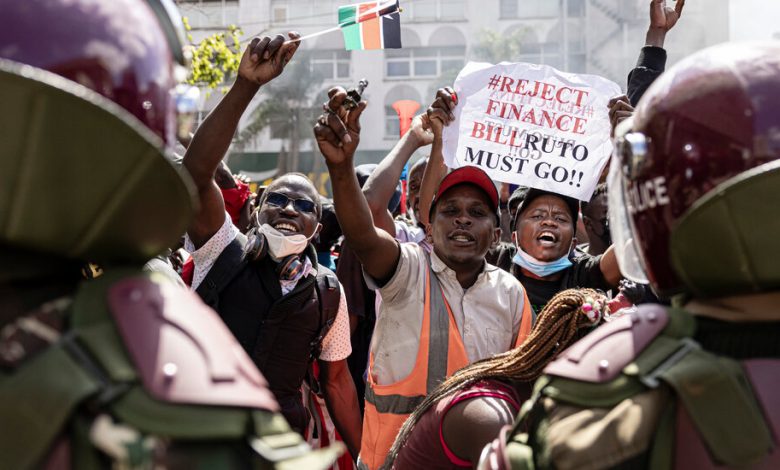Protests in Kenya Over Tax Bill: What to Know

The sting of tear gas, the crack of live bullets and images of wounded people sprawled across the ground accompanied mass protests Tuesday in Nairobi, the Kenyan capital, after Parliament passed a controversial bill raising taxes, despite criticism that it wouldintensify economic desperation.
At least five people died from gunshot wounds, civic groups said, and crowds breached the Parliament amid plumes of smoke as days of protests against the tax bill ended with police and protesters clashing. In recent days, the government has been accused of abducting critics, making mass arrests around the country to quell unrest and using force that caused brutal injuries and at least one death.
Typically a regional bastion of economic security, Kenya has a population of over 54 million. Many of its young people have used technology and social media to organize opposition to the government that they say transcends ethnicities, tribes, races and socioeconomic class.
Here is what we know about the contentious legislation that set off Tuesday’s clashes.
What will the tax bill do?
The Ruto government presented Finance Bill 2024 to Parliament in May in what it framed as an effort to increase revenue to help the country deal with immense debt in its borrowing-based economy.
Initially, the bill called for taxes on essentials like bread, cooking oil and cars, but public backlash caused lawmakers to roll some levies back. However, the rollbacks failed to derail public protests.
On Tuesday, Parliament passed the bill. It is expected to increase taxes on imported goods — including some basics, like eggs, from nearby East African nations — as well as on phone and internet usage, bank transfer fees and digitally operated businesses.